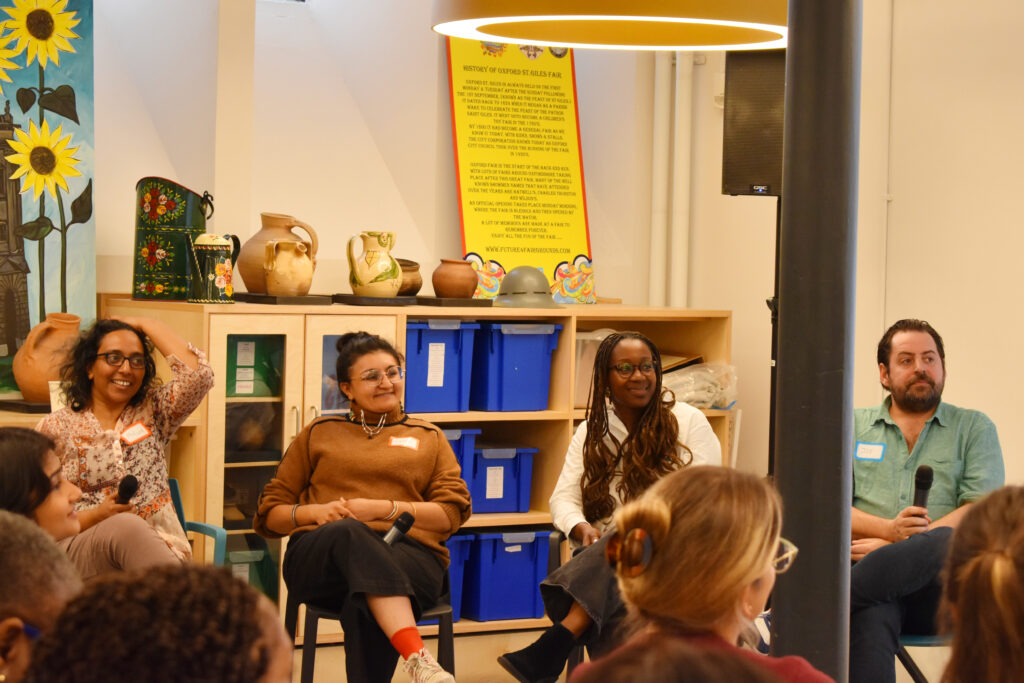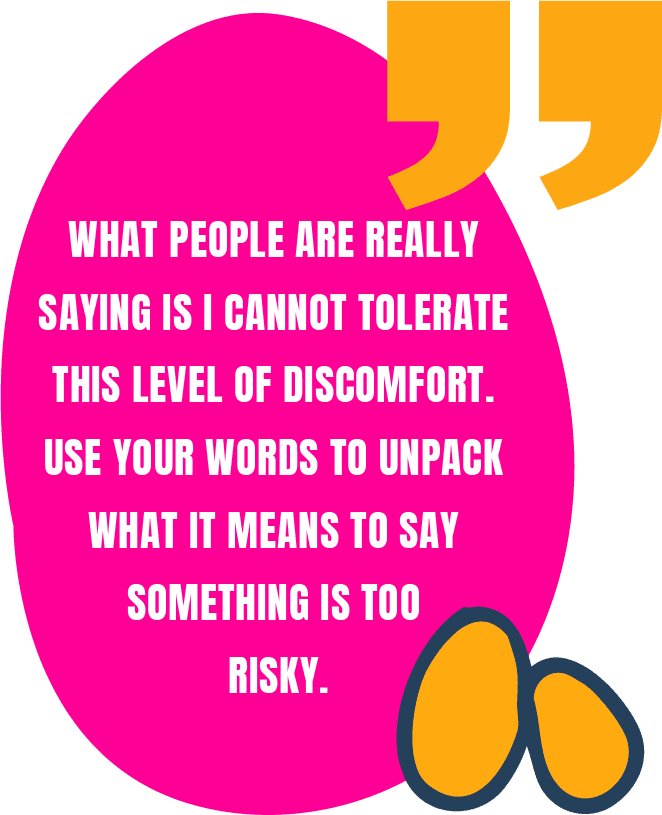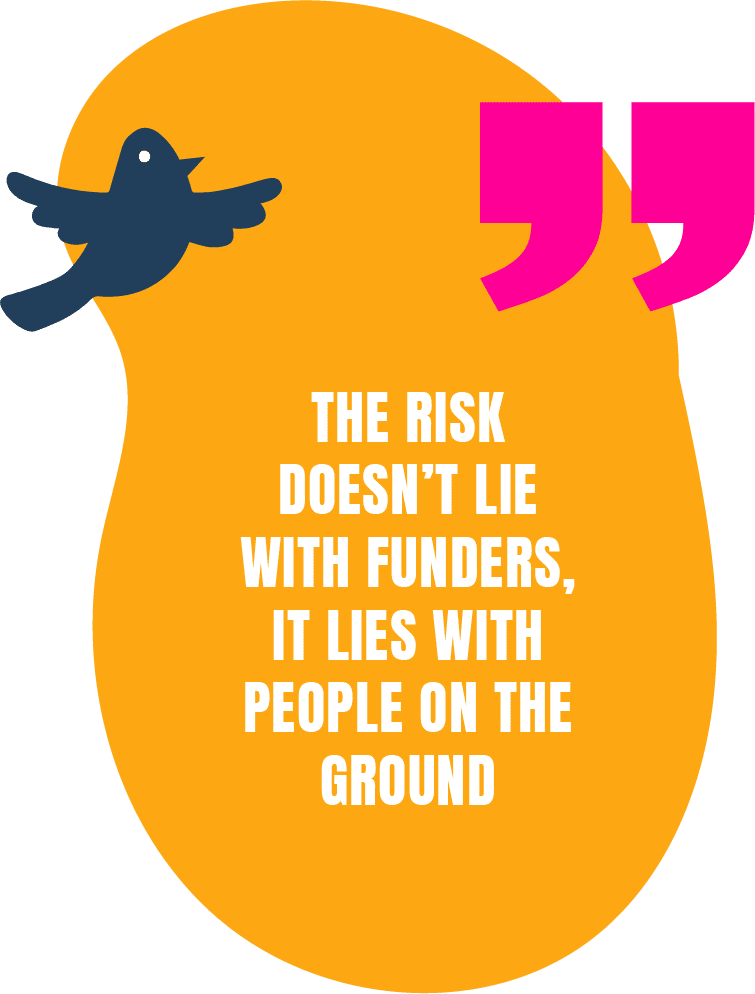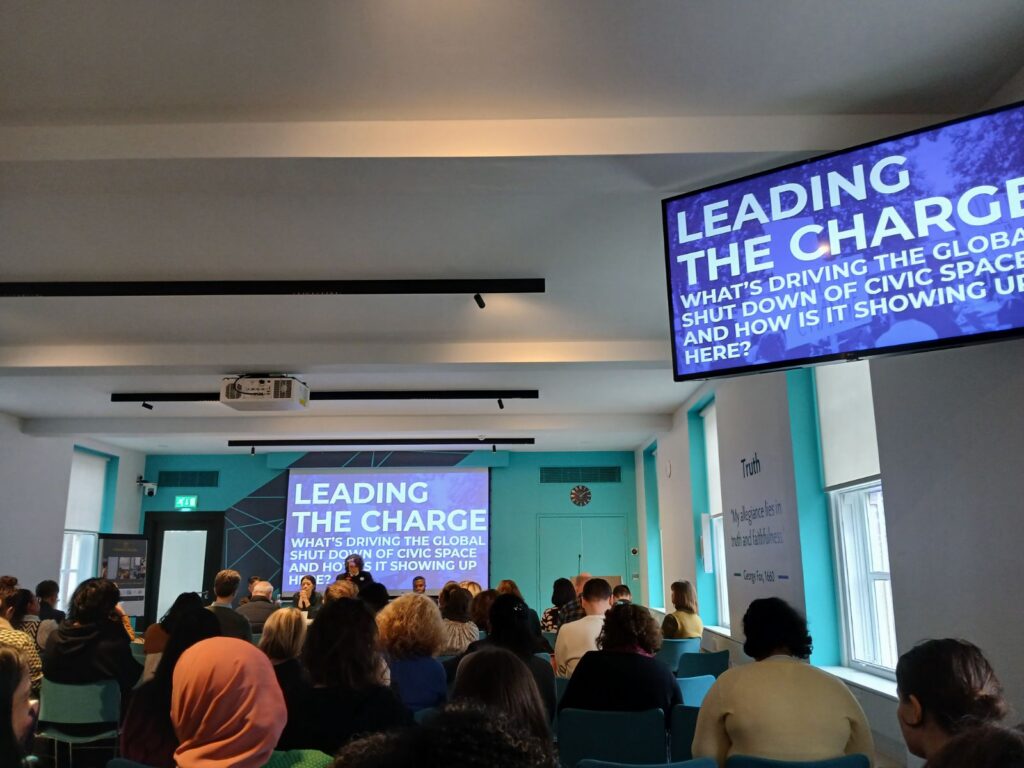Risky Business at Marmalade
On Wednesay 2nd of April 2025 we ran our event “Risky Business?: An event for funders to explore risk in funding” at Marmalade, the fringe festival happening in Oxford every year during Skoll World Forum. Risk is part of our DNA at The Social Change Nest – a topic that we’ve been exploring in depth since we set up. After all, our role as an intermediary is often to absorb the risk in front of funders, and ensure that the impactful work that our groups across the world are doing gets the funding it deserves.
We know that grassroots groups and movements are usually at the forefront of social change, and have the potential to do so much more. A lot of our work has been focused on enabling the groups in our community to access funding, by acting as an intermediary between them and funders. For the past 5 years, we’ve moved nearly £30 million into the hands of over 700 civil society groups. But the work is hard. Funders often report to boards that are quite risk-averse, and an incorporated group that doesn’t fit into their existing frameworks to define an “entity” is deemed too risky.
“Risk is a somatic response. But we funders try to judge using data points, spreadsheets, and it’s akin to trying to fit a square peg in a round hole. We can’t translate those things on the screen into the feelings we have, and that inability to translate causes behaviours that keep us trapped in old patriarchal mechanistic colonial ways” – Joe Doran, Walcot Foundation
As Joe put it, risk is not an objective reality, it’s something subjective and felt, it’s very emotional. Risk doesn’t just live in our heads — it lands in our bodies. A tight chest. A held breath. A racing heart. Sometimes, risk feels like danger. Sometimes, it feels like possibility. Learning to tell the difference is the real work. We’ve found that it’s really important to sit down and talk about risk, so that’s what we did with a room full of nearly 100 groups and community organisations.
Who gets to take risks? Who pays the price when they go wrong? What if our job as funders isn't to avoid risk — but to hold it, share it, maybe even invite it? And what is the risk of not doing, of not funding this work? To us, to society?

To explore these questions, we had 4 brilliant panellists. From left to right these are: Melissa Latchman, Community Organiser based in Oxford, Guppi Bola, co-funder, Decolonising Economics, Stephanie Brobbey, Founder and CEO of Good Ancestor Movement and Joe Doran, Head of Grantmaking at The Walcot Foundation. We asked them what risk means to them, and how it comes up in their work. Here are some of the key themes that emerged from the discussion:
- Blogs
1/ We often use the word “risk” to blur what we really mean and avoid the work of unpacking biases and obsolete processes. What we’re often wondering is if this group really “deserves: a resource, whether it can be ‘responsible’ enough for it. Our individual politics and lived experience as funders influence this, as well as the systems in which we’ve been socialised and our relationship to power.
We need to stop using the word risk. What people are really saying is ‘I cannot tolerate this level of discomfort’. Use your words to unpack what it means to say something is too risky.” – Stephanie Brobbey, Good Ancestor Movement
2/ The real risk is to relationships, and community groups are the ones who really care about these and won’t put them at risk. Unlikely money, relationships are not a resource that can regenerate. It’s very risky to test them due to the sacredness and care that they need. Groups on the ground have been building these relationships and weaving networks of support for decades. They’re held accountable by their communities and won’t do anything that jeopardises them. They don’t need funders to hold them accountable in other ways.
“In 2023, we had the opportunity to receive a very large amount of money. That opened up a conversation with our community on the risks involved and the deep responsibility we felt about those resources. We talked for over a year before taking action, because we were aware we could put at risk relationships that had been cultivated for many years and the community had negative experiences with redistribution in the past” – Guppy Bola, Decolonising Economics

3/ The philanthropic sector needs to re-evaluate it’s association between risk and losing money. All the panellists questioned why we kept referring to risk as if it was only about losing money. What’s the problem in losing some money? Other sectors lose money continuously and we don’t question it. The wealth that powers most foundations has been built by taking risk (and often exploiting communities) over generations. But when it comes to supporting communities heal, we use the risk of losing money as an excuse not to do it.
“The risk doesn’t lie with funders, it lies with people on the ground. There’s a risk in disrupting the system for the groups, in challenging the funder, in advocating for what we know our communities need. But for funders, what is the real risk? Some money got wasted, we tried a few things and it didn’t work. We learned and we can now try others. The real risk is people not eating, communities losing their sense of agency.” – Melissa Latchman, Community Organiser

And, how did the room feel about all this? Before the panel, we put out a menti and asked the room to tell us about their risk appetite, their board’s risk appetite, and their comfort with that discrepancy. The poll results were clear: everybody felt their risk appetite was much higher than their board’s, and felt the tensions caused by that gap.
So, how do we continue the work to reconcile these tensions and bridge the gap between work that gets things done and work that gets funded? At The Social Change Nest, we have deep expertise working with funders to explore how risk is understood and translated within their organisations, and how to move towards less risk-adverse models of grant-making that get their money to the places where it really makes a difference. If you’re a funder wanting to explore this with us, here are some next steps:
- Download our practical guide to talk to your board about risk.
- Join our Losing Control in Funding Action Learning Set – a space to connect with other funders and explore challenges together.
- Talk to us to book a workshop on risk for your board or team, or to explore other bespoke support.
If you’re a group looking for a fiscal host who can absorb the risk in front of funders, and remove all the administrative burdens so that you can focus on creating impact for your community, please get in touch. We’d love to help.
We’ll be running more events for funders and community groups soon, the best way to stay posted is to sign up to our newsletter.

